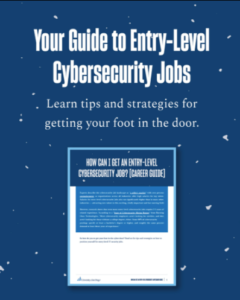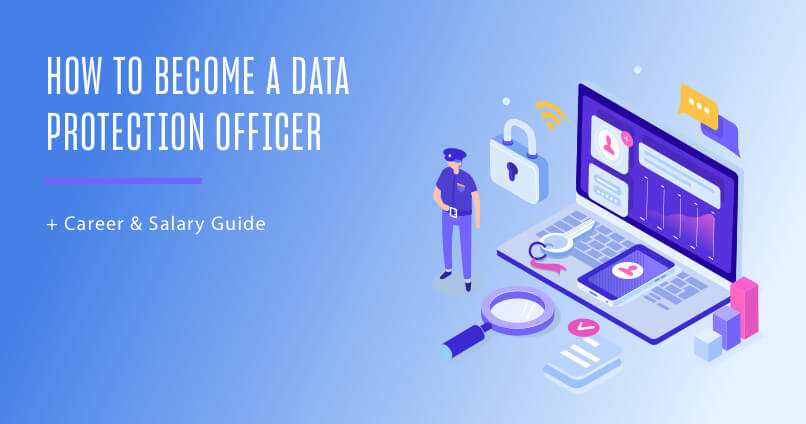The global epidemic of cybercrime has triggered a worldwide effort to beef up cybersecurity in organizations across all industries. And because the stakes are so high — it’s estimated that the 2022 cybercrime economy is now worth at least $1.2 trillion — employers are paying top dollar for cybersecurity professionals who possess the needed skills, experience and education.
This makes a career in cybersecurity an extremely attractive option for experienced pros, as well as those who may be just getting started in this rewarding and vitally important field. There is also a well-documented cybersecurity talent shortage, as the labor market races to catch up with the growing need for cybersecurity experts. This means there are plenty of positions available.
But how do you get into cybersecurity? Read on for tips and insights designed to help you land your ideal job in this high-paying, fast-growing field. Our focus will be on identifying some common resume and interview pitfalls, and strategies for how to avoid them.
The ‘Entry-Level’ Bar Is Higher for Cybersecurity Jobs
10 Cybersecurity Job Search Strategies [Resume & Interview Tips]
- Avoid rookie mistakes
- Speak the language
- Demonstrate that you’re a team player
- Avoid overstating your accomplishments
- Ask intelligent questions
- Network (but don’t “over-network”)
- Don’t feel like you have to be an expert on everything
- Do some extra homework
- Beef up the ‘Education’ section of your resume
- Understand that your degree or certification is only part of the equation
Entry-Level Cybersecurity Tips & Example Resumes
Common Entry-Level Cybersecurity Interview Questions
Entry-Level Cybersecurity Careers You Might Be Interested In
The ‘Entry-Level’ Bar Is Higher for Cybersecurity Jobs
First, you need to know that an “entry-level” position in cybersecurity generally requires a higher level of education and experience than in many other fields. According to the National Security Agency (NSA), “entry-level” for many cybersecurity positions means one of the following:
- Associate degree plus 8 years of in-depth experience clearly related to the position
- Bachelor’s degree plus 6 years of relevant experience
- Master’s degree plus 4 years of relevant experience
- Doctoral degree and no experience
However, the high pay and widespread need for skilled professionals means there is strong competition for the best jobs. Therefore, you’ll need to bring your “A” game when it comes time to apply.
[FREE GUIDE] How to Secure an Entry-Level Cybersecurity Job >>
10 Cybersecurity Job Search Strategies [Resume & Interview Tips]
1. Avoid rookie mistakes
As with any job for which you’re applying, avoid resume errors that give recruiters and interviewers a reason to eliminate you from the pile of applicants. This obviously means zero spelling errors. Once you’ve landed an interview, you can be certain that:
- Any dialogue involving the word “cloud” is almost certainly not about the weather.
- Any question about “pen testing” is definitely not about handheld writing instruments.
- And any interviewer who asks you about “phishing” does not want to hear the story about the big one you caught at the lake that one summer.
2. Speak the language
All kidding aside, be sure to bone up on your understanding of all the key industry terms and acronyms. (Hint: There are a lot of them, and many are fairly complex.) It’s essential that you be able to communicate in the technical language in which all cyber professionals must be fluent. Here are a couple of resources:
- The CyberWire, a cybersecurity-focused news service and thought leader
- The National Initiative for Cybersecurity Careers and Studies, an online resource for cybersecurity training under the Department of Homeland Security
3. Demonstrate that you’re a team player
Now more than ever, cybersecurity professionals must interact with people and Now more than ever, cybersecurity professionals must interact with people and departments throughout the organization to get the job done. Remember that it isn’t just about you, and that no one expects you to solve an organization’s critical security issues in a vacuum. Interviewers are likely to respond favorably when applicants demonstrate an attitude of collaboration and teamwork.
4. Avoid overstating your accomplishments
If you’ve never thwarted an international malware attack using an ingenious combination of security patches, firewalls, data encryption and anti-malware technology, don’t claim that you have. Rather than bluff about capabilities, speak honestly about the experience and training you possess. And most important, express sincere enthusiasm about building on those skills to make a difference in the role for which you are applying.
5. Ask intelligent questions
In many interviews, usually toward the end, the interviewer will invite you to ask him or her any questions. Be sure to have a few questions prepared. Having no questions at all is a missed opportunity. Ask something that shows an understanding of and a curiosity about the role for which you’re applying, rather than some general query about, say, dress code or company culture.
Questions like “What are the biggest challenges that someone in this position would face?” or “What attributes does someone need to be successful in this position?” demonstrate your focus on excelling in the role for which you are interviewing. A question like “What do you like most about working here?” can help build your rapport with the interviewer.
6. Network (but don’t “over-network”)
Networking with industry professionals is one of the most important things you can do to expand your circle of contacts and gain “informational interview”-type advice that will help you in your cybersecurity job search. However, avoid exaggerating your connections to industry players. It will serve you far better to talk about who you read and how you stay current on the latest happenings in cybersecurity than to gratuitously name-drop (so avoid claiming that you’re poker buddies with Brian Kebs). There are dozens of cybersecurity groups on LinkedIn, with topics ranging from general to highly specific.
7. Don’t feel like you have to be an expert on everything
The world of cybersecurity continues to evolve rapidly, meaning there will invariably be new technology, trends or threats with which you are not intimately familiar. Rather than present yourself as an expert generalist with across-the-board knowledge, highlight your own skills and experiences that best connect to what you see as the needs of the organization. “Related experience” is also helpful. If you haven’t held a job specifically in cybersecurity, it might be worth mentioning any security-related tasks in previous IT roles, such as involvement with user access or compliance with company security policies.
8. Do some extra homework
Take time to learn everything you can about the companies or organizations to which you are applying before the interview. Not only will you feel more confident, but your research will also position you to ask better questions, provide more relevant answers and perhaps even impress an interviewer with special insight about the company or specific position.
9. Beef up the ‘Education’ section of your resume
Most cybersecurity professionals can count one or more industry certifications among their list of accomplishments. In fact, there are so many opportunities that it isn’t always easy to figure out which cybersecurity certifications are right for you. Being able to identify yourself as a Certified Information Security Manager (CISM) can help your chances, and the CompTIA Security+ certification is specifically designed for entry-level security professionals.
10. Understand that your degree or certification is only part of equation
Obtaining your master’s degree in cybersecurity or earning an industry certification are testaments to your dedication to continually expanding your understanding of the fast-changing cybersecurity landscape. However, these will not guarantee you a job offer from every place you apply. It’s also important that you back up your educational accomplishments with real-life experience. If you’re still at the beginning of your career, emphasize how you might apply what you’ve learned to the job you are seeking. Also, demonstrate your understanding that, especially in larger organizations, it isn’t just about technology, it’s also about people and processes working together.
That said, a master’s degree can be a huge differentiator when you’re competing in the robust cybersecurity job market. It opens the door to the widest range of possibilities, not to mention specific jobs in which you might be interested. Online master’s degree programs have become increasingly popular because they’re designed to accommodate busy working professionals. But not all cybersecurity degree programs are created equal.
[FREE GUIDE] How to Secure an Entry-Level Cybersecurity Job >>
Resume Best Practices
Your resume is often the first impression you’ll make with a hiring manager or HR employee. It’s important for your resume to accurately articulate your education, experiences, certifications and more. List your experiences in chronological order and be as specific as possible (add in numbers whenever possible). Here are the sections of a resume, and an example entry-level cybersecurity resume.
Sections of a resume
Header: The header should include your name and contact information.
Summary or objective: One- or two-sentence summary explaining your experience, goals and interests relative to the job you’re applying for.
Work experience: Starting with the most recent work experience, list title, company, date and a few bullet points outlining your job responsibilities.
Skills: Include a list of cybersecurity-related hard and soft skills.
Education/certifications: Include relevant education, relevant coursework and any certifications.
Entry Level Cybersecurity Tips & Sample Resumes
There are multiple approaches to creating a cybersecurity resume. Here are some tips, examples and resources to help you get started.
Tips
- List education, experiences and work experience in reverse chronological order
- Include related coursework, internships or hands-on experience
- Make the resume easy to read (simple font, utilize white space, etc.)
- List both hard and soft skills
- Include any certifications earned or in-progress
- Include any security clearances
- Be as specific as possible when listing out achievements
Sample Resumes
- ResumeLab: Example resumes and writing tips
- ResumeWorded: Example resumes, templates and additional resources
- Zety: Formatting tips, best practices and example resumes
- Indeed: Resume writing outline, examples and template
- Springboard: Resume writing examples and tips to get applicants hired
Common Entry-Level Cybersecurity Interview Questions
Be prepared to answer a variety of interview questions, including industry-specific questions, such as:
- What’s the difference between a threat, vulnerability and risk?
- What’s a firewall?
- What is the difference between a black, white and gray hat hacker?
- What is a VPN?
- What are common types of cybersecurity attacks?
At the University of San Diego, we offer an innovative, 100% online Master of Science in Cyber Security Operations and Leadership and an immersive, on-campus or online Master of Science in Cyber Security Engineering.





